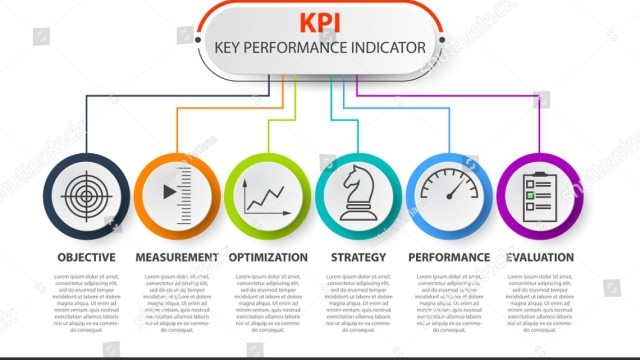
Key Performance Indicators, commonly known as KPIs, play a pivotal role in the success and growth of any organization. Whether it is a small business or a multinational corporation, implementing effective KPIs enables the measurement of progress towards goals and provides valuable insights into performance. By monitoring these indicators, organizations can identify areas of improvement, align strategies, and drive operational excellence.
In today’s highly competitive business landscape, understanding and mastering key performance indicators have become essential for staying ahead of the curve. KPIs serve as a compass, guiding decision-making processes and enabling proactive adjustments to ensure targets are met. They provide a clear and concise snapshot of performance, facilitating effective communication among stakeholders and fostering a culture of accountability and transparency.
Unlocking success lies in not only identifying the right KPIs for specific objectives but also in measuring and analyzing them accurately. Choosing the appropriate indicators that align with organizational goals, along with establishing relevant benchmarks and targets, forms the foundation of a robust performance measurement system. Additionally, employing the right tools and technologies to capture and analyze data enables organizations to make informed decisions and drive continual improvement.
In this article, we will delve into the world of Key Performance Indicators and discuss their significance, types, and best practices for implementation. We will explore how KPIs enable organizations to monitor progress, optimize processes, and drive success across various business functions. So, fasten your seatbelts as we embark on a journey to unlock the secrets of mastering Key Performance Indicators and unlock the pathway to success.
Understanding Key Performance Indicators
Key Performance Indicators
Key Performance Indicators (KPIs) are essential tools for measuring and evaluating the success of a business or organization. These indicators provide valuable insights into various aspects of performance, helping decision-makers to make informed choices and drive growth.
KPIs serve as quantifiable metrics that reflect the progress towards achieving specific goals or objectives. By monitoring KPIs, organizations can assess their performance, identify areas for improvement, and track their success over time. These indicators often vary based on the industry, goals, and strategies of an organization.
Effective KPIs are those that are aligned with an organization’s overall strategy and objectives. They should be specific, measurable, attainable, relevant, and time-bound (SMART). By setting SMART KPIs, businesses can establish clear targets and ensure that progress can be accurately tracked and measured. This enables them to make data-driven decisions and focus their efforts on areas that contribute the most to overall success.
In addition to providing a clear picture of a business’s performance, KPIs also enable benchmarking against industry standards and competitors. By comparing their performance against others in the market, organizations can identify areas of strength or weakness, allowing them to make necessary adjustments and stay competitive.
In conclusion, Key Performance Indicators are crucial for understanding and evaluating the success of a business or organization. These indicators provide valuable insights and benchmarks that drive growth and inform decision-making. By utilizing SMART KPIs, organizations can set clear targets, measure progress, and make data-driven choices that propel them towards success.
Selecting the Right KPIs
When it comes to unlocking success and measuring progress, Key Performance Indicators (KPIs) play a vital role. Selecting the right KPIs for your business is a crucial step towards understanding and improving performance. By focusing on relevant indicators, you can gain valuable insights and make well-informed decisions to drive success.
The first step in selecting the right KPIs is to align them with your business objectives. Clearly define what you want to achieve and identify the key areas that directly contribute to those goals. For example, if your objective is to increase sales revenue, relevant KPIs could include monthly sales growth rate, average deal size, or customer acquisition cost.
Next, consider the specific metrics that will provide meaningful data for your business. It’s important to choose KPIs that are both quantifiable and actionable. Look for indicators that can be measured accurately and consistently over time, allowing you to track progress and identify trends. Additionally, ensure that the chosen KPIs align with the available resources and data sources within your organization.
Finally, involve relevant stakeholders in the selection process. Gather input from key decision-makers, department heads, and team members who have a deep understanding of the processes and operations. By involving the right people, you can gain valuable insights and ensure that the selected KPIs are relevant, realistic, and achievable.
In conclusion, selecting the right KPIs is a crucial step in unlocking success and improving performance. By aligning them with your business objectives, choosing meaningful metrics, and involving the right stakeholders, you can set yourself up for success and make data-driven decisions that drive growth.
Utilizing KPIs for Success
In order to unlock success and drive meaningful results, businesses and individuals can harness the power of Key Performance Indicators (KPIs). Organizational success is often driven by the ability to measure and track progress towards specific goals, and KPIs serve as the compass that guides these efforts.
Implementing effective KPIs allows for a clear understanding of performance and the identification of areas needing improvement. By setting measurable and realistic goals, organizations are better equipped to monitor progress, make informed decisions, and drive continuous improvement. KPIs provide a valuable framework for aligning actions and strategies towards achieving desired outcomes.
Tracking KPIs enables businesses to gain valuable insights into the effectiveness of their initiatives and processes. By analyzing key metrics and performance indicators, organizations can identify trends, spot opportunities, and make data-driven decisions that lead to success. With the right KPIs in place, businesses can optimize operations, enhance productivity, and drive profitability.
Moreover, KPIs serve as a means of fostering accountability and focusing efforts on what truly matters. By providing a clear picture of performance, KPIs enable individuals and teams to take ownership of their goals and work towards achieving them. This accountability-driven approach fosters greater motivation, collaboration, and strategic alignment throughout the organization.
In conclusion, by leveraging Key Performance Indicators, businesses can unlock the pathway to success. Utilizing KPIs provides a measurement framework that aligns efforts, drives data-driven decision-making, and fosters accountability. With the right KPIs in place, organizations can optimize their performance, identify areas for improvement, and ultimately achieve their desired outcomes.






Recent Comments